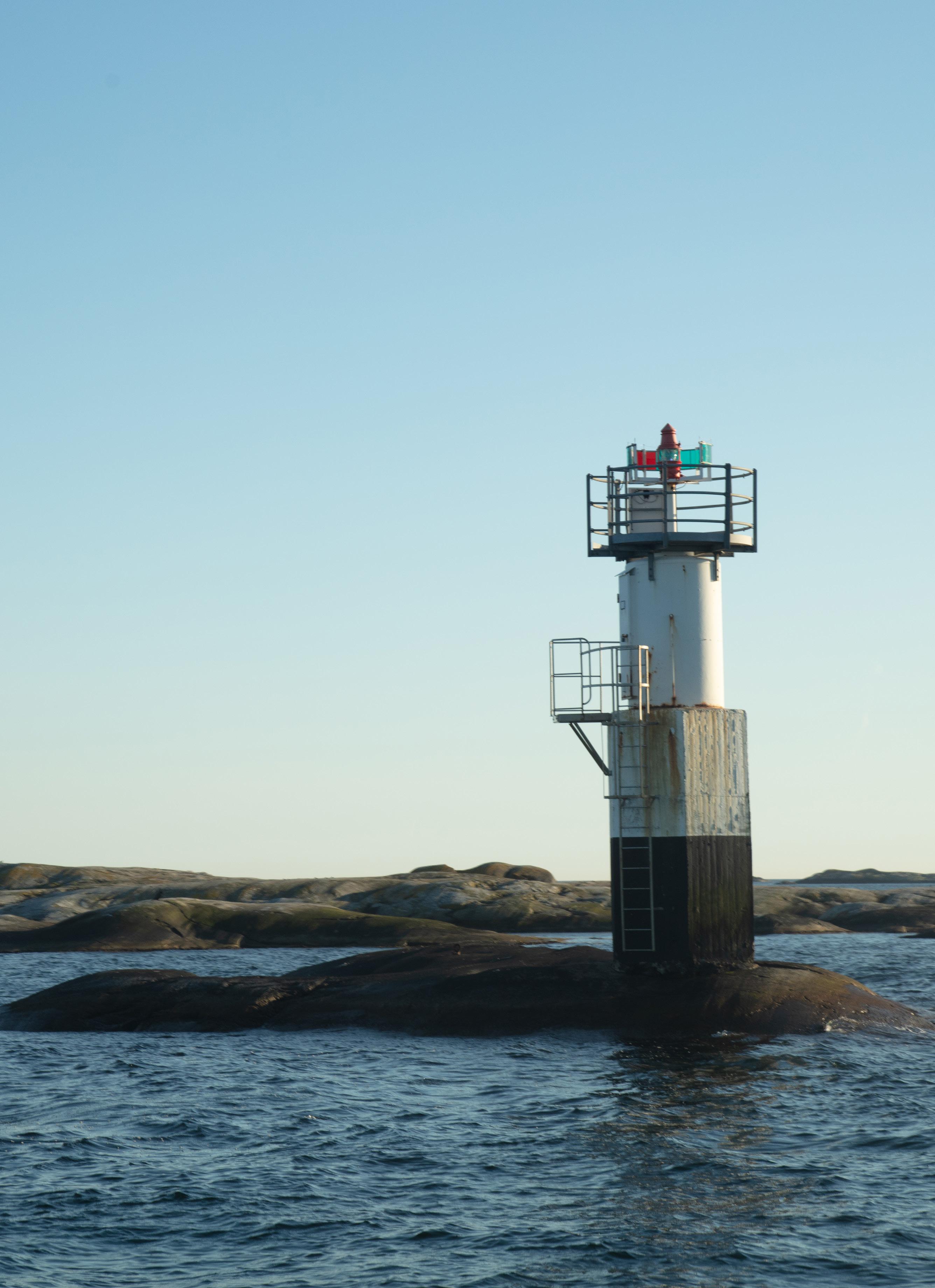Swedish thinking. Better living.
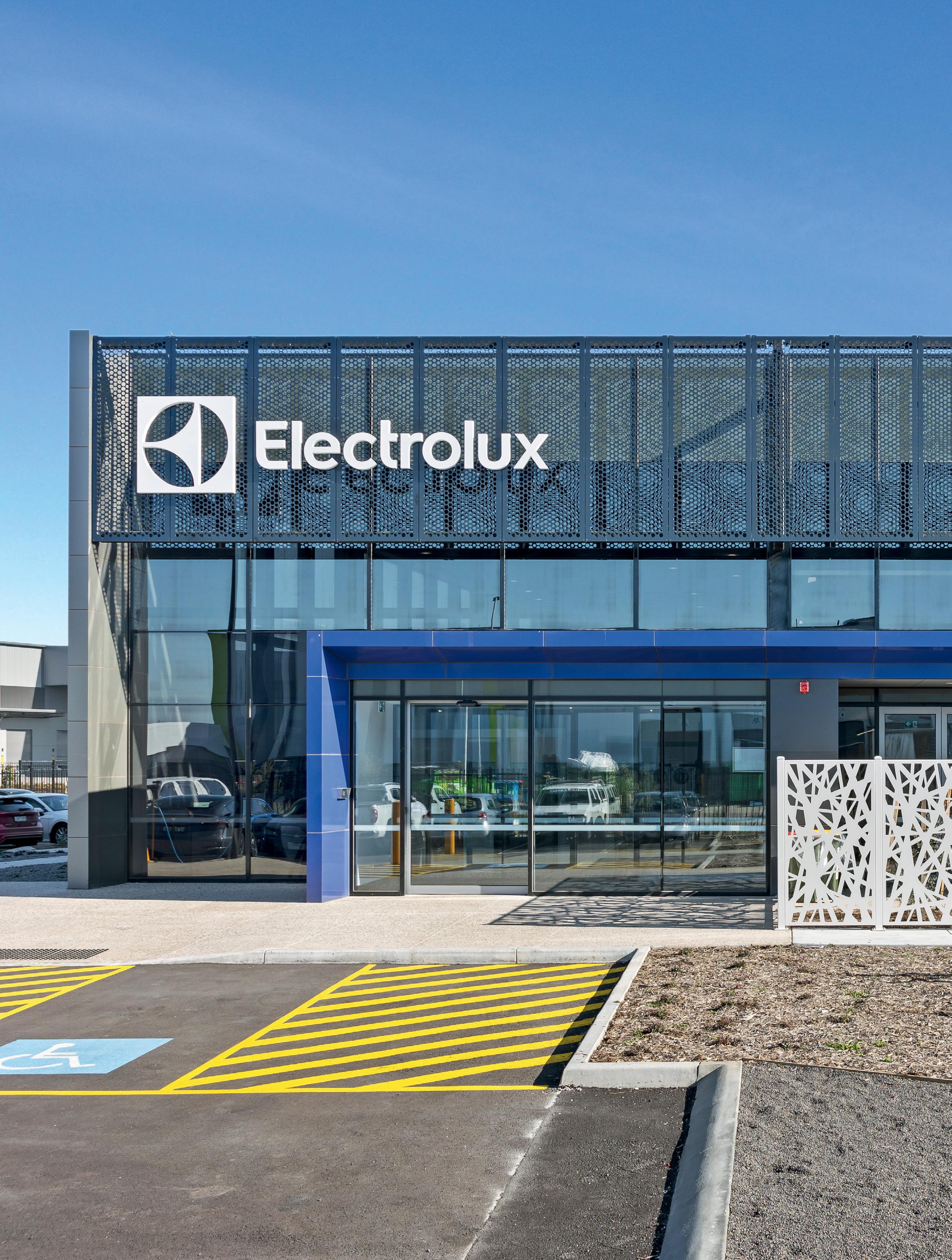

Swedish thinking. Better living.


Over the last 12 months, the topic of sustainability and its importance to retail partners and end consumers has become a necessarily dominant topic of conversation, according to Electrolux Australia and New Zealand managing director, Kurt Hegvold.

“It’s become increasingly clear that consumers are better educated and purchase behaviour is shifting, particularly among Gen Z and Gen Y consumers, as they look for companies and brands that can deliver authentic circular solutions, more sustainable products and practices,” he said.
“Consumers now understand more about what end to end circular and responsible sustainability means. We are seeing government mobilising to deliver strong policy and regulation in this space to ensure we are making real progress towards the committed Australian 2030 agenda for sustainable development.
“We are seeing consumers become more focused on what products are made of, whether it can be managed through its lifecycle to end of life and its footprint during its lifecycle. We are partnering with our R&D team to ensure the products we bring to market have the highest possible energy ratings and, like our peers, we are committed to reaching 9-star and 10-star ratings on laundry products.”
Smeg head of marketing, Livia McRobert said consumers are not only interested in energy efficiency and, if appropriate, water ratings when considering home appliances, but also manufacturing materials, design and processes play a role in the decisionmaking process.
“Smeg remains focused on ongoing improvements in manufacturing such as the newly launched recycled Tritan Renew, in selected small appliances with no adverse impact on durability or performance.
Consumers
Smeg remains committed to responsible design, where only materials which can easily be recycled are selected, such as steel, glass, aluminium and brass. Packaging has been overhauled with EPS foam packaging removed from small appliances and, where possible, major appliances. Plastic has been removed and replaced with recycled paper and cardboard,” she said.
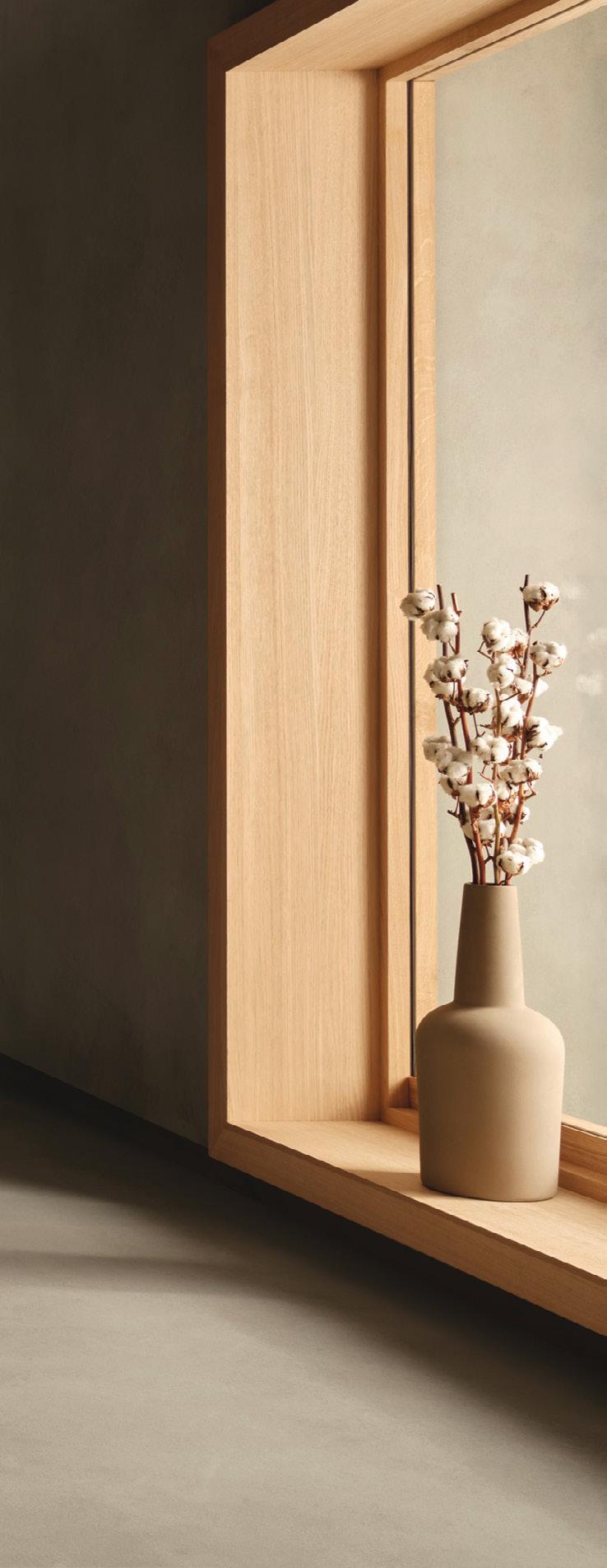

BSH has also seen shifting consumer purchasing behaviour with a greater emphasis on sustainability. “In home appliances, we are seeing more consideration of energy and water efficiency. The Bosch heat pump dryer (WTX88M20AU) features a 10-star energy rating and most Bosch Series 6 dishwashers feature a 5.5-star WELS rating. Ratings such as these help to give consumers confidence when it comes to choosing products for their home enabling them to lead a more sustainable lifestyle,” head of brand, Jessica Deuscher said.
Eurolinx recently conducted a thirdparty evaluation of its business operations in relation to sustainability and are working on a roadmap for the company.
“With the current market trend towards electric and specifically induction cooking, we are looking to expand our offering. Later this year, we will be releasing an ILVE 120cm cooker with all induction cooking surface in Professional Plus, Nostalgie and Majestic styles, as well as more built-in models. We will also launch new Artusi induction cooktop styles in white glass and black glass. Both brands deliver market-leading induction with integrated downdraft hood products available with plasma filters,” marketing manager, Daniel Bertuccio said.
With consumers increasingly concerned about cost savings when it comes to energy, water and food, Miele has responded with a 360-degree approach. →
Rooted in our Swedish values and a sustainable relationship with nature, we design with a clear purpose. We do everything we can to nurture our planet for future generations. We not only create taste experiences, take care of clothes and maintain a comfortable home. We create experiences shaped by how we live and by innovations that help people live better.
ABOVE: Miele continues to improve energy efficiency ratings across its range, including laundry appliances. RIGHT: ILVE induction cooktop with integrated downdraft rangehood.“
Four in 10 Australians will stop purchasing from brands that don’t support sustainable practices.
“At Miele, we are focused on two key areas –waste reduction and driving a circularity model. We have optimised our water and energy efficiency ratings, particularly in our latest refrigerators and heat pump dryers. In late 2022, Miele launched its latest K7000 refrigerator with 5.5-star energy rating – one of the highest ratings in the Australian market,” marketing director, Michele Laghezza said.
“We have also improved the recyclability of our products and the proportion of recycled materials including recycled plastics. Beyond the product itself, we want to support the consumer in better usage of their products because 84% of carbon emissions comes from usage in the home, more than manufacturing and transport.
“Miele has just launched a new campaign, ‘Buy Once, Buy Besser’, designed to reassure customers and give them confidence they have made the right decision to invest in an appliance that will last. An investment in Miele helps customers save money in the long-term, not just because of the appliances’ longevity, but because they can help with savings in energy, water and food wastage every day.”
When Steel brings new products to market, the company ensures they are the most energy efficient possible. “The new 100-year anniversary line has a selection of eco functions that save up to 30% of energy compared to standard functions. Our steam function also saves both energy and time.,” president, Auro Po said.
“We only use recycled steel for our cookers and when we laser cut a sheet of steel, we have about 20% material waste which is then recycled.”
Olimpia Splendid is focused on bringing more sustainable products to market. “Many of our units are Wi-Fi enabled and offer daily and weekly programming. Our portable air conditioners are also moving towards more sustainable R290 gas,” marketing and new product development manager, Peter Burnham said.

At CES 2023 in Las Vegas, the Panasonic Group demonstrated its commitment to a sustainable future by highlighting how it’s applying innovative technologies to address CO2 emissions.
“Panasonic Group invests in research to better understand the concerns of its consumers and people who engage with its brand around the world. From this research, the number one concern with young people in every market is the state of the environment,” Panasonic Australia managing director, Paul Reid said.
“Increasingly, Australians are seeking more sustainable products and services. Local research released last year by strategy consultants, Nature and The Lab reported that four in 10 Australians will stop purchasing from brands that don’t support sustainable practices, so encouragingly it is becoming less of an option for businesses to avoid this responsibility.”
For Nespresso, sustainability has always been at the core, from recycling programs to coffee machine designs to optimise the use of energy, water and most critically coffee.

“Our latest coffee machines, Vertuo Next and Vertuo Pop, are examples of how sustainable principles are being considered. Vertuo Next is made from 54% recycled materials, and Vertuo Pop, the newer and smaller iteration, is made from 35% recycled plastic, comes in packaging made from 99% recycled materials, and has an energy consumption class A+ rating,” brand manager of corporate and sustainability, Hayley Warwick said.
“Our AAA Sustainable Quality Program ensures the continued supply of high-quality coffee by improving the livelihoods of farmers and protecting the environment through actions such as social initiatives, income protection, nature-based farming solutions and regenerative agriculture.”
ABOVE: Bosch heat pump dryer WTX88M20AU features a 10-star energy rating.Magimix products come with a 30-year motor warranty, but the reality is that the machines last longer than 30 years, up to 40 or 50 years, according to managing director, Wivina Chaneliere. “Over the past few months, we have seen an increase in the number of customers bringing back machines they purchased 40 or 50 years ago because the machines are still working, they just need a new set of bowls. But we also offer to repair the machine – often it’s not the motor, but the shaft or a button. This shows that our customers are more concerned about sustainability and want their machine to keep going, despite the age,” she said.
“Each time a machine is returned, we write a story from the person who purchased the machine and their attachment to the product. We share the stories on our social media platforms and will soon add them to our website as it’s our point of difference in the market. Our strength is the durability and performance of our machines. We are receiving feedback from our retail partners that customers want to purchase a Magimix because it’s made in France, with the country of origin becoming increasingly important.”
Over the last 12 months, there has been an encouraging response to Belkin’s sustainability initiatives from retail and channel partners.
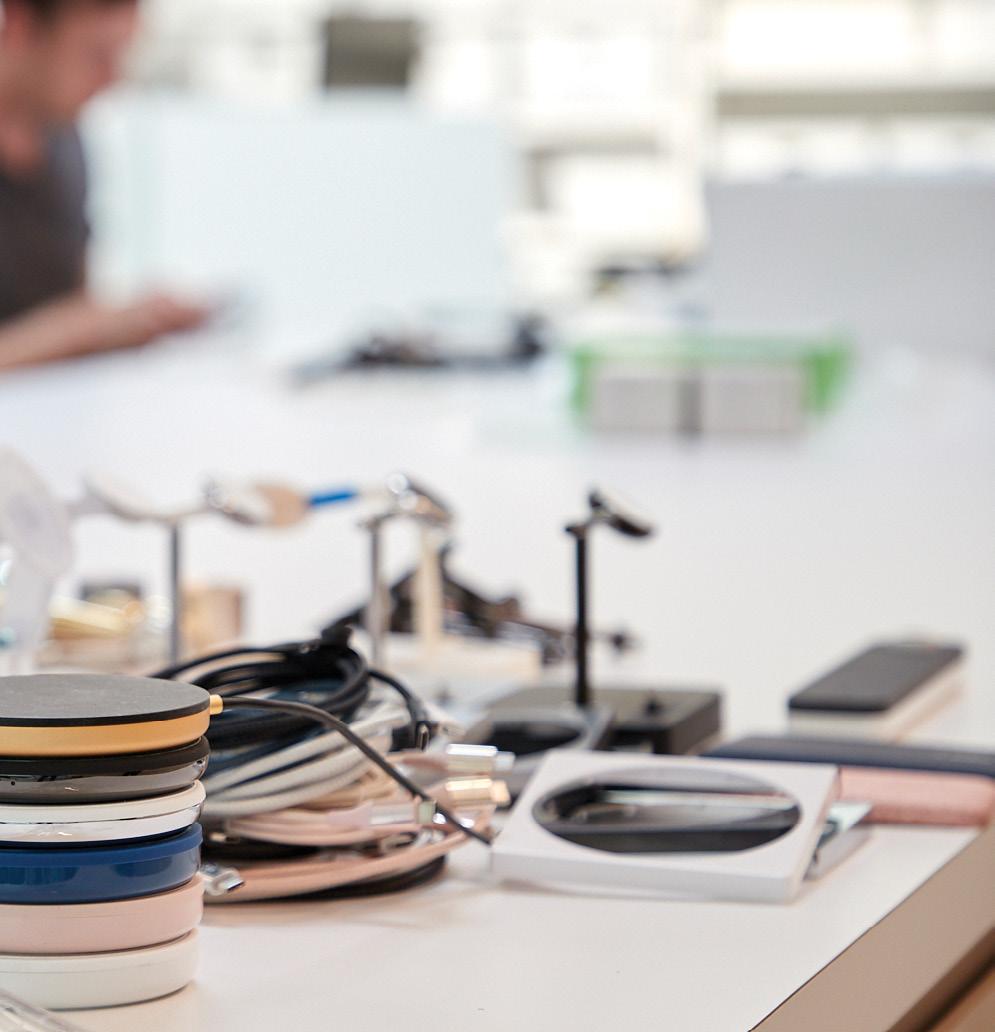
“We’re expanding and launching new products using post-consumer recycled (PCR) plastics; a process we’ve expedited for the Australian and New Zealand market because our end consumers and partners are calling for it. Our channel partners have been extremely engaged – not only now but over the past few years – and it continues to evolve in our ongoing conversations,” Belkin Australia and New Zealand head of product management, Jamie Laing-Reece said. AR
57% are more mindful of their environmental impact since Covid.
62% are using less plastic.
44% are choosing energy efficient appliances.
75% of women are concerned about their carbon footprint compared to 66% of men.
42% are choosing energy efficient lighting.
83% of Gen Z are the most concerned about their carbon footprint compared to 55% of Baby Boomers.
48% choose green products to set a good example for others.
73% have concerns about climate change.
A recent Finder report has shown that consumers preference sustainable products and services when making key buying decisions in the appliance and consumer electronics categories.
Make homes free from harmful allergens and pollutants

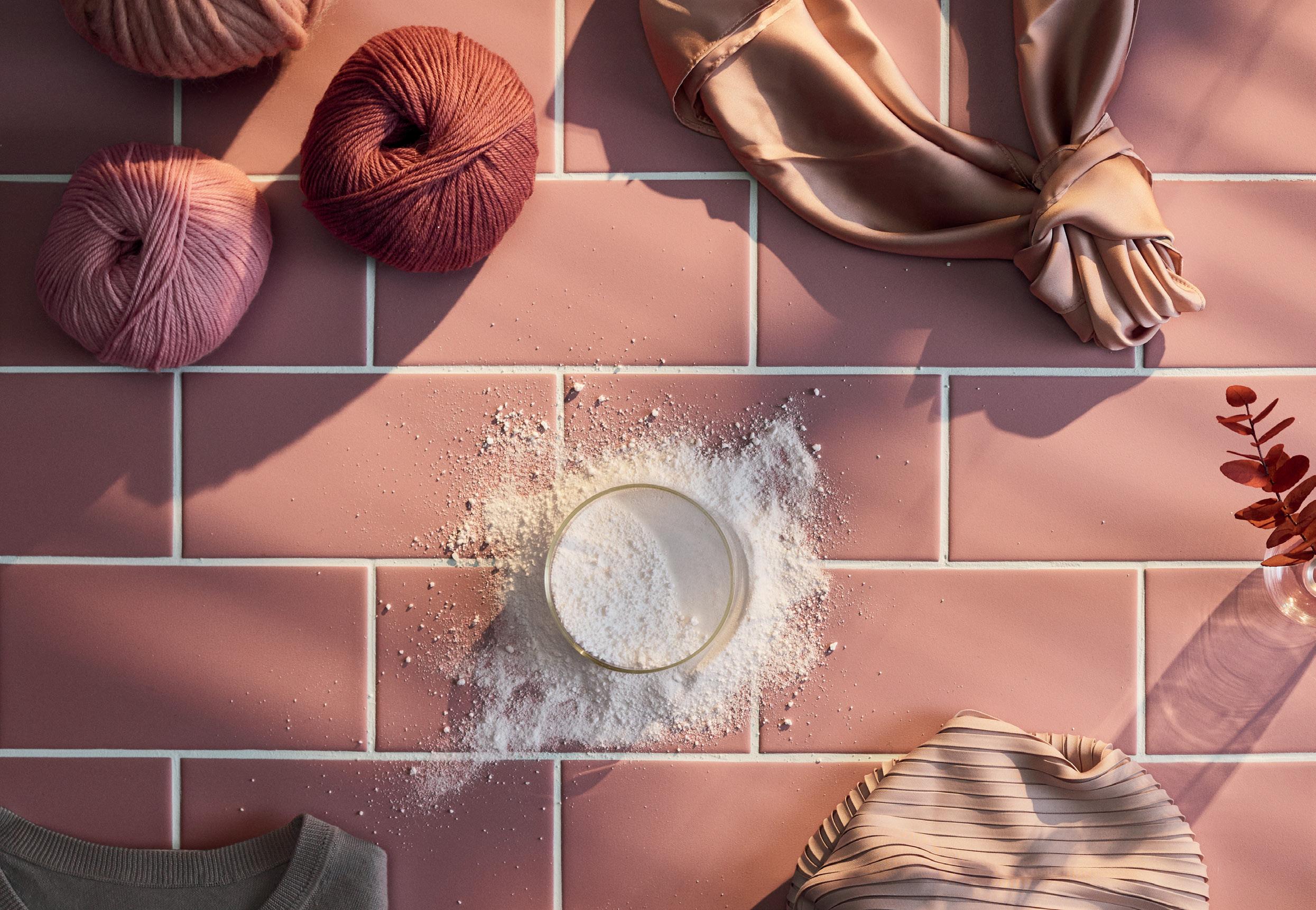
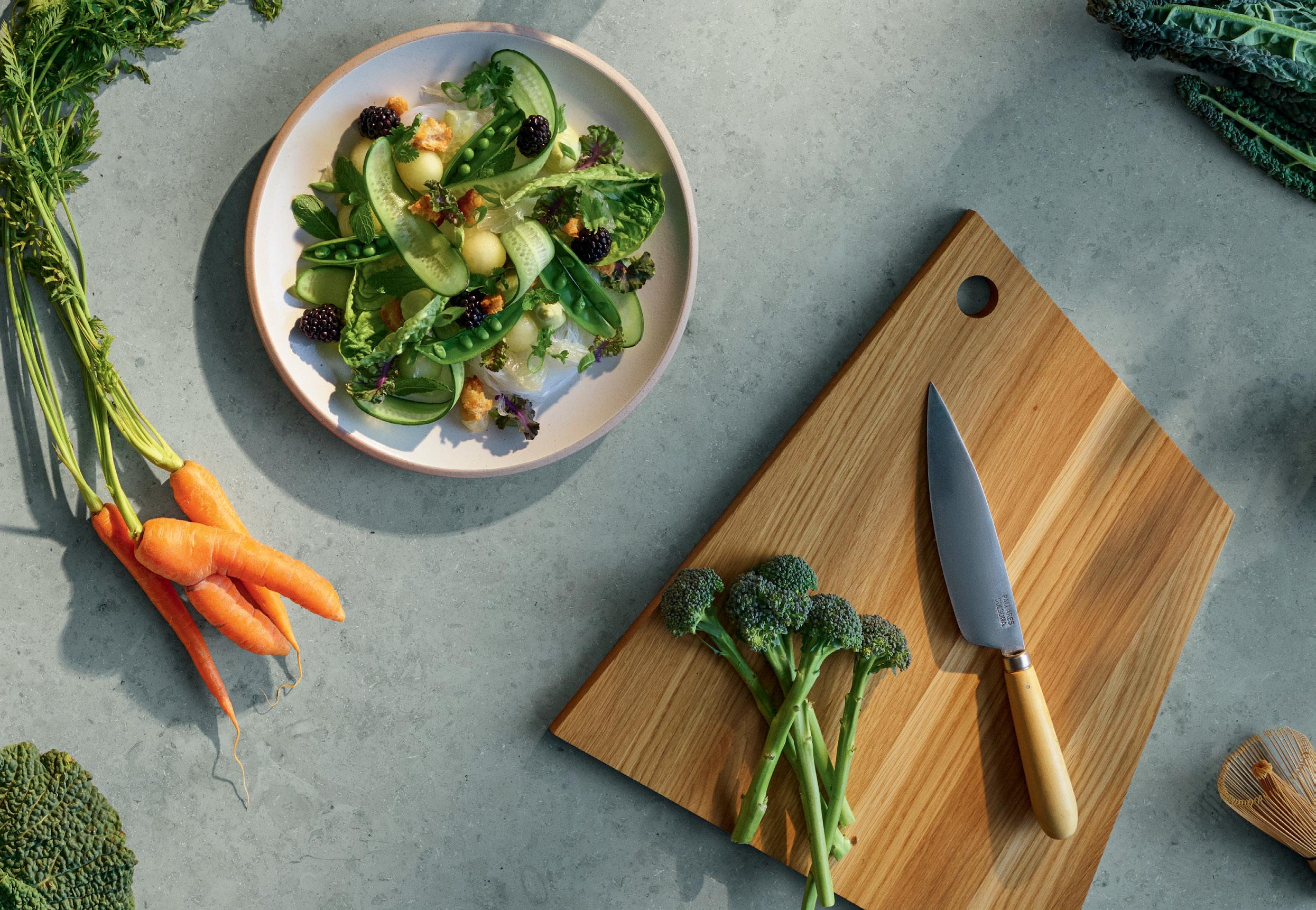
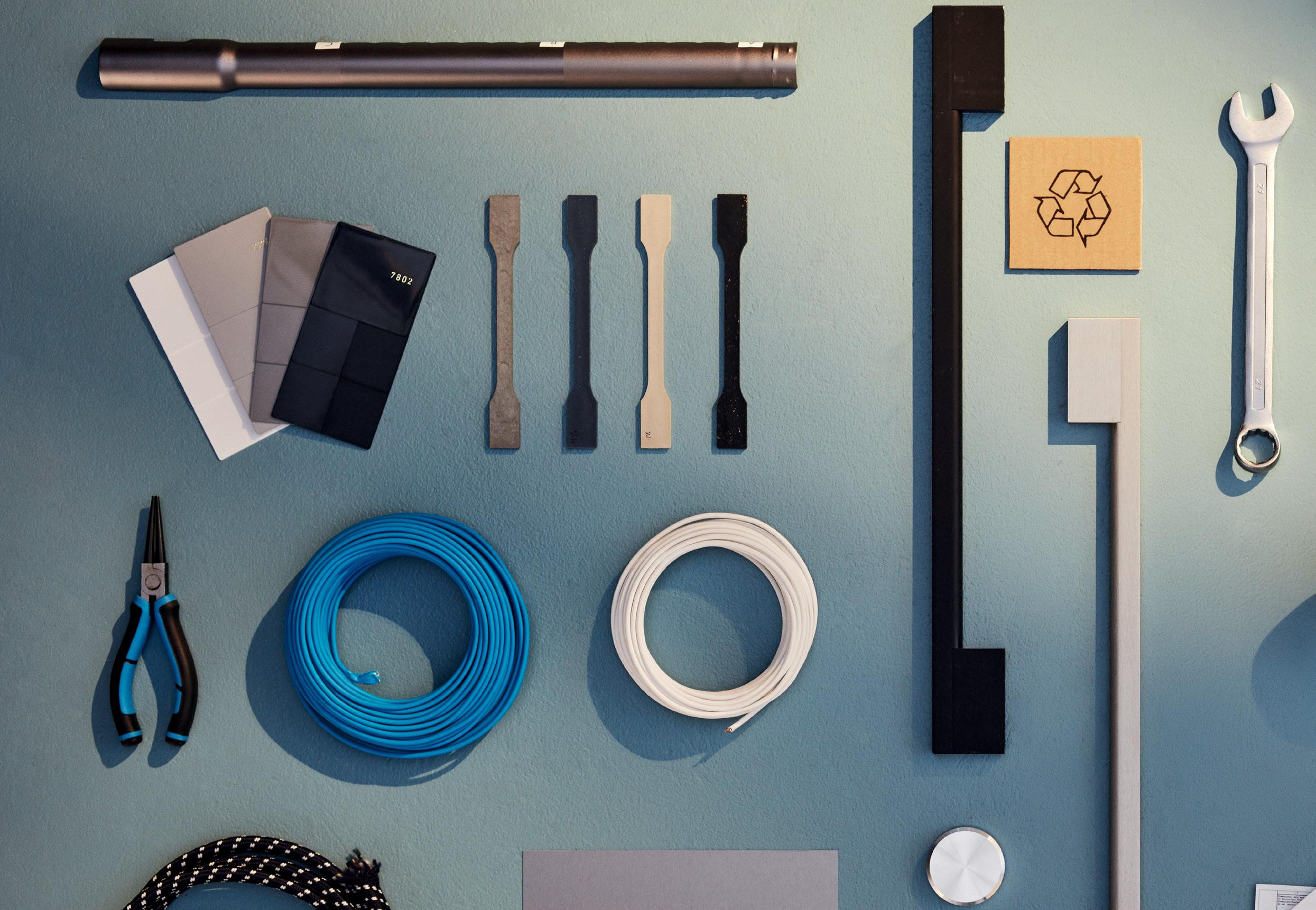
Make clothes last twice as long with half the environmental impact


Make our business circular and climate neutral
Scan to learn more
100 actions to shape better and more sustainable living living around the world

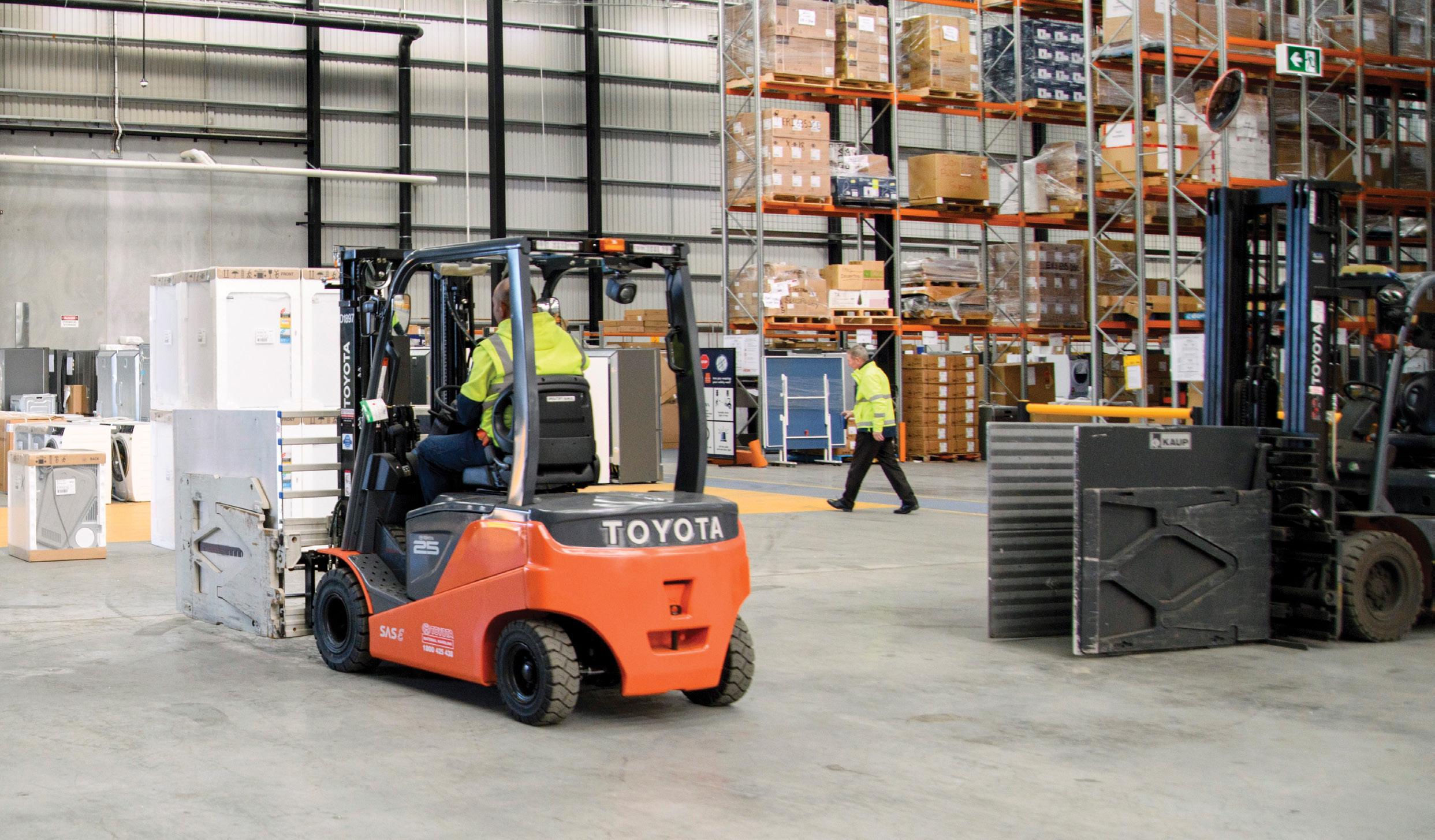
Electrolux continues to focus on improving its endto-end supply chain by introducing more sustainable products and practices focused on using renewable energy sources, reducing waste and emissions and implementing sustainable supply chain practices.
“Our Dudley Park manufacturing plant in Adelaide achieved Zero Landfill certification in 2021, which means more than 99% of total waste has been diverted away from landfill and less than 3% of total waste is sent to landfill. In Victoria, the renewable energy program of our Ravenhall distribution centre sees the majority of its power derived from a 200Kw on-site solar infrastructure and the purchase of green electricity with plans to convert the balance of its material handling equipment, including forklifts, from non-renewable fossil fuel to electric by the end of 2024,” Kurt Hegvold said.
“We have carried out a few trials with our transport provider utilising electric vehicles, with an ambition to create a very low to neutral carbon emissions supply chain leg, once product is on land in Australia. Hypothetically, if the product is produced in Dudley Park, we have a facility that derives its power from solar and has zero waste to landfill. If we can secure a pathway for electric vehicle transportation to our Ravenhall hub, which also enjoys low to no emissions, and replicate the electric vehicle transfer to our retail partner, we could achieve very low emissions.
“Partnering with our logistics providers, we have reduced low value truck movements by 51% and moving transport to rail removed tens of thousands of kilometres and halved our CO2 emissions from these parts of our supply chain. We are looking to partner with key retailers with similar emerging capabilities, such as retail outlets with the majority of power sourced via solar, as an opportunity to create a carbon neutral supply chain to end consumers.
“Exploring the use of more recycled materials and content, while increasing the recyclability of our products is another area we’re focusing on. For example, our vacuum cleaner range includes up to 70% recycled plastic on certain models. There is also a focus on reducing or eliminating painting and other processes to enhance the recyclability of components.
“Another example we’re excited about is our 2022 launched recycled interior refrigerator in Europe, due to launch in Australia in 2025. This product has an inner liner made from 70% recycled plastic. We are the first in the world to incorporate this much recycled plastic into a refrigerator, so it’s not only innovative, but an important industry breakthrough.
“Product packaging and removing certain material, while retaining the highest level of product integrity through the supply chain is another area commanding our attention. This will become an industry-wide requirement, but is something we have been working on for several decades.”
Smeg is Environmental Management System certified according to the standard ISO 14001:2015. In this context, energy consumption are constantly monitored to ensure continual improvement and progressive reduction in CO2 emissions. “Smeg supports an ethical supply chain model when selecting component materials such as the ability to recycle spare parts including oven elements and rangehood filters. Sustainability practices are followed in logistics, covering how we deliver and warehouse our products,” Livia McRobert said.
BSH is working with global supply chain partners to influence indirect emissions. We are minimising the use of resources and energy consumption along the entire value chain. This includes sourcing and manufacturing, as well as the usage, return, refurbishment, recycling and reuse of appliances, with the goal to reduce indirect emissions by 15% by 2030.
“A large part of this goal stems from the materials we purchase and use. Since 2021, BSH has been using polystyrene packaging made from recycled plastic waste at selected manufacturing locations, with an ambition to use this type of resource-efficient packaging for all large appliances worldwide,” Jessica Deuscher said.
Eurolinx acknowledges that the largest contributor to its carbon footprint is freight. “This is vital to our operations and product supply to customers, but we are looking into programs and initiatives to reduce or offset it in the future,” Daniel Bertuccio said.
At a global level, Miele is minimising the frequency of air freight shipments as much as possible. “In Germany, we deployed the first fully electric service vans, which is something we would also like to do in Australia. At a local level, we have introduced our first hybrid delivery trucks and are optimising our logistics to reduce the distance taken when we deliver and service our appliances,” Michele Laghezza said.
“Miele has also introduced low CO2 steel with the intent to ultimately move entirely to green steel. We introduced aluminium made exclusively with green electricity from hydropower. We are also increasing the use of recycled plastics in our tumble dryers, vacuum cleaners and consumables packaging. We have managed to reduce our CO2 emissions in Scope 1 and Scope 2 by almost 40% since 2019. If we also include Scope 3, we have reduced our carbon emissions by more than 200,000 tonnes.”
A few years ago, Steel purchased a new factory – instead of building new premises, it converted an old textile building. “We have installed solar panels on the roof – 10 times more than what we needed to not only generate our energy, but energy for another nine companies like us,” Auro Po said.
“We invested about €500,000 to plant more trees and offset our carbon. We are also investing a lot in production with machinery for laser cutting and bending, which are the two most important processes in our new factory and are the most energy efficient. The new laser machines require only one-fifth of the energy used by previous machines, they are more powerful and five times faster. The bending machine is a fully automatic system that requires about half of the energy of the previous machine.”
When it comes to shipping, Olimpia Splendid budgets for a FCL (full container load) to maximise efficiency. “If a full container isn’t reached, we try to consolidate other products or spare parts. For packaging, we are working with suppliers to convert to more
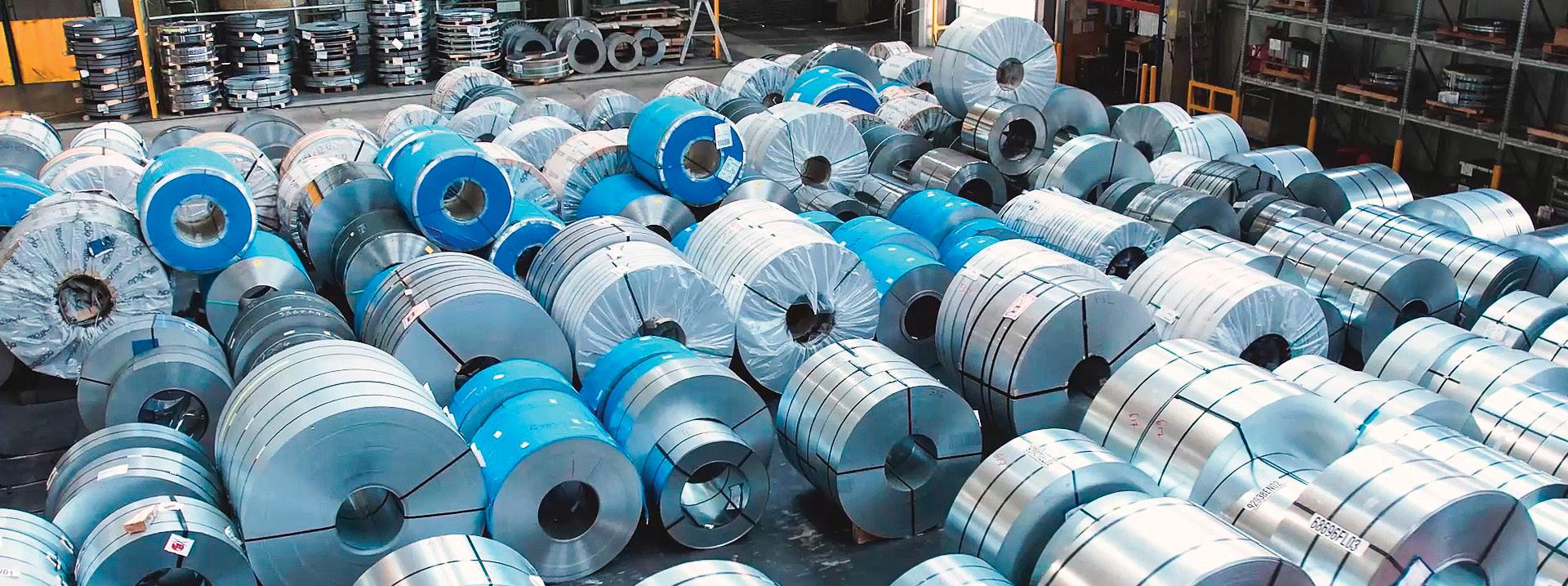
sustainable recyclable options. In some cases, we have moved from coated to plain boxes. We are also looking at staples rather than plastic tape for boxes and when possible, shifting from polystyrene to cardboard packaging,” Peter Burnham said.
The Panasonic Global Procurement Company works with around 14,000 suppliers worldwide. “Our role in the years ahead is to continue to develop fair, appropriate, and sustainable supply chains by pursuing mutual prosperity with suppliers who share our values of environmental and social responsibility,” Paul Reid said.
Nespresso is on a journey to net-zero, reducing and removing emissions throughout the value chain, which has already resulted in a 24% reduction in the carbon footprint of each Nespresso cup, when comparing 2020 to 2009.
“We plan to close the gap by investigating innovations with our suppliers, monitoring progress and making meaningful reductions as we learn. For example, 47% of our machine models are now made using recycled plastics,” Hayley Warwick said.
Magimix is currently transitioning packaging from polystyrene to recycled cardboard materials for every product. “Although it isn’t yet mandatory in Australia or Europe, we made the decision to do the changeover now. The process started in late 2022 and we expect to complete the transition by the end of 2023. Polystyrene is lightweight and offers good protection but it’s not recyclable and therefore not eco-friendly,” Wivina Chaneliere said.
Belkin is encouraging and incentivising supply partners to align with similar targets and consider zero waste to landfill. “Over the coming years, we may even require some of our partners to follow in our footsteps with products, packaging and also our supply chain,” Belkin International director of global product management, Eric Co said.
At a local level, Belkin has plans to achieve 100% plastic-free packaging and reduce the size of packaging. “Not only are we more mindful of the products we are producing but also the impact we have on logistics,” Jamie Laing-Reece said.
A couple of years ago, Belkin established an Executive Sustainability Committee which has extended beyond headquarters into the regions. “The original synthesis of this committee included VP level executives across functions including logistics. It’s an incredibly complex challenge to bring air freight to a halt and only transport by land or sea but it’s top of mind at Belkin and we’re always striving to be more efficient,” head of global communications, Jen Wei said. AR
Less than one-third of people (32%) are aware that gas is a significant health hazard.
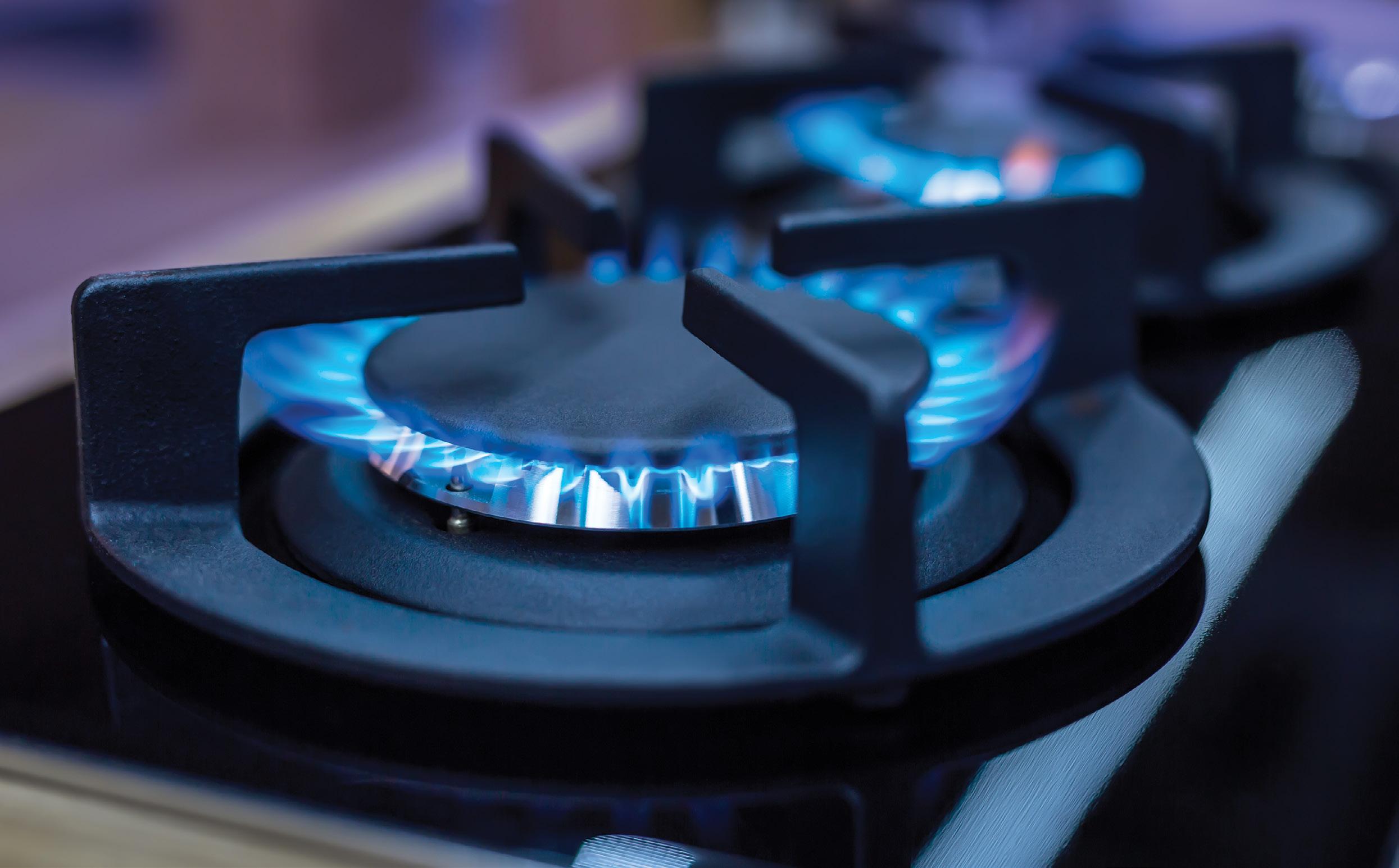
The Climate Council has partnered with founder of the I Quit Sugar movement, Sarah Wilson to launch a new campaign highlighting the health dangers of gas in homes.
The I Quit Gas campaign is calling on state and territory governments to help Australians with interest free loans for switching to allelectric home appliances.
A new national poll commissioned by the Climate Council shows nine in 10 (90%) Australians are well aware of the health dangers of tobacco and asbestos, yet less than onethird (32%) are aware that gas in the home is a significant health hazard.
“I founded I Quit Sugar a decade ago to help people live healthier by cutting processed sugar out of their lives at a time when there was a low level of public awareness of the links between sugar and chronic diseases. Now, I’m taking on gas, another dangerous substance lurking in Australian homes,” Wilson said.
“The evidence is clear and mounting that gas stoves and heaters leak toxic gases including nitrogen dioxide into our homes, which has been linked to asthma in children. Unfortunately, public awareness is unacceptably low. Just like big tobacco and big sugar have gone to great lengths to downplay the dangers of their products, the gas industry has spent millions trying to falsely market gas as ‘natural’, when it is in fact toxic and dangerous.
“As well as the health risk, gas is a fossil fuel that is rapidly worsening climate change. It
has no place in our kitchens and homes, and we should be kicking gas out and moving to all-electric options for cooking, heating and hot water as fast as possible.”
Climate Council head of advocacy, Dr Jennifer Rayner commented, “Gas is a key culprit behind the sky-high energy prices that are fuelling Australia’s cost-of-living crisis. Policies to help households move from g as-fired to electric-powered appliances will unlock bill savings, while transitioning our national electricity grid from gas to 100% renewable energy prices will send wholesale energy prices plummeting.
“State and federal governments can help Australians weather the cost-of-living crisis. Providing zero interest loans for them to switch to all-electric appliances, banning the practice of connecting new homes to gas, and rapidly scaling up the roll-out of large scale renewable energy and storage in our grid are all win-win solutions for our health, hip-pockets, and the climate.”
The I Quit Gas campaign follows the recent creation of the Global Cooksafe Coalition made up of property companies, leading chefs and health professionals, to help phase-out gas from kitchens.
At the time of launch, real estate firm, Lendlease made a commitment to put an end to gas in kitchens of new developments by 2030 and all-electric retrofits of existing properties by 2040 – the most ambitious commitment in Australia at the time. AR
“
The gas industry has spent millions trying to falsely market gas as ‘natural’, when it is in fact toxic and dangerous.
Sustainable thinking begins at home.
Welcome to Smeg HQ, named one of the most innovative sites in Italy thanks to its intelligent consumption management and sustainable development policies.
Here we embrace the RoHS directive and REACH regulation to the fullest, restricting the use of hazardous materials and substances and ensuring that human health and the environment are protected to the fullest extent.
We create and design responsibly, ensuring all our products are made better with emphasis on the choice of materials which can be easily recycled.
Our innovations such as Tritan Renew molecular recycling, using waste plastic instead of fossil-based resources. This technology breaks down hard-to-recycle plastic waste into its basic building blocks to create new, pristine materials.
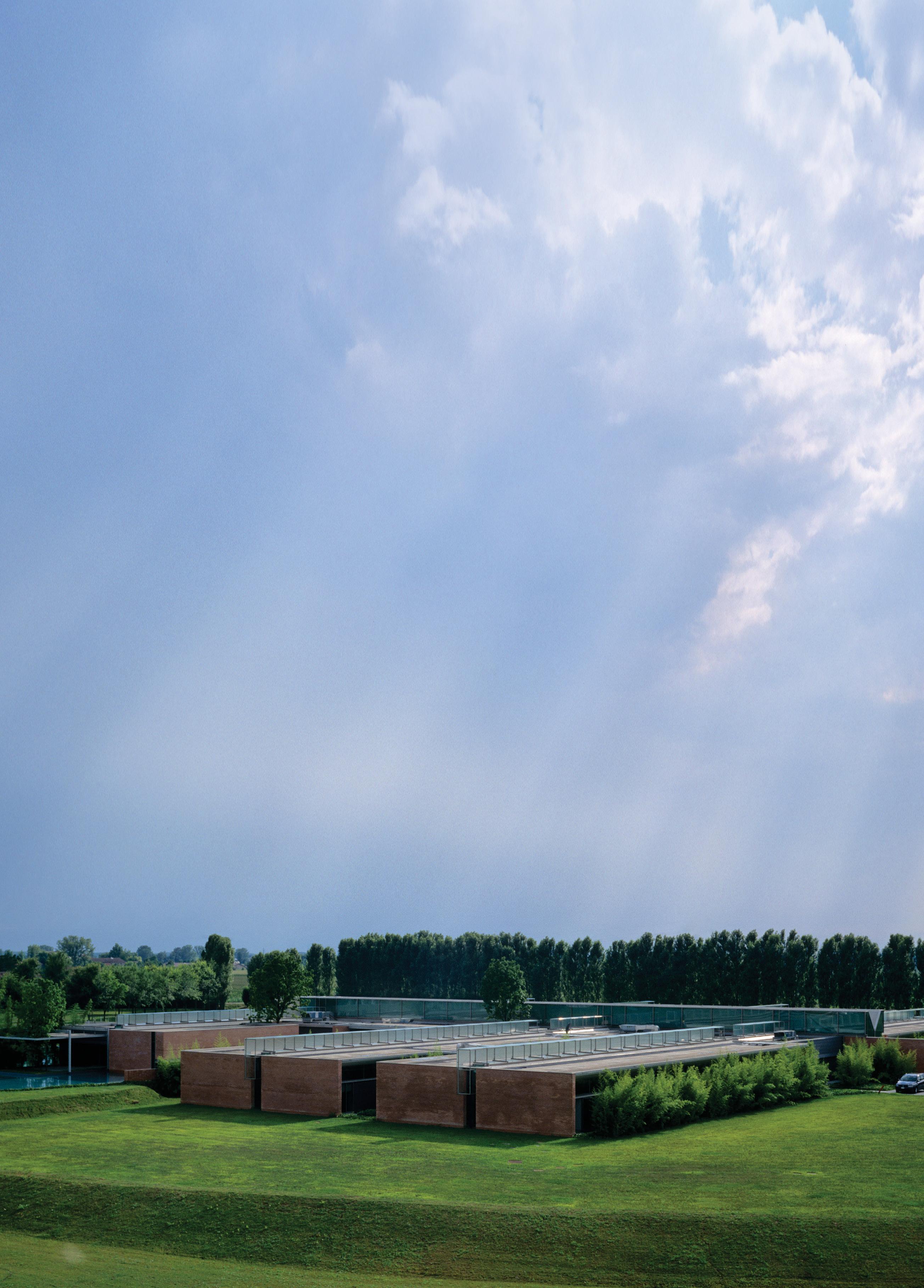 Image by F. Castagna
Image by F. Castagna

The Australian Competition and Consumer Commission (ACCC) has warned businesses to be ready to substantiate any environmental or sustainability claims when marketing their goods and services.
The ACCC is investigating a number of businesses for potential ‘greenwashing’, following an internet sweep which found more than half of the businesses reviewed made concerning claims about their environmental or sustainability practices.
Of the 247 businesses reviewed during the sweep, 57% were identified as having made concerning claims about their environmental credentials, with the cosmetic, clothing and footwear, as well as food and drink sectors found to have the highest proportion of concerning claims; although other sectors examined also had a significant proportion of concerning claims.
“Our sweep indicates a significant proportion of businesses are making vague or unclear environmental claims. This warrants further scrutiny,” ACCC deputy chair, Catriona Lowe said.
“Businesses using broad claims like ‘environmentally friendly’, ‘green’, or ‘sustainable’ are obliged to back up these claims through reliable scientific reports, transparent supply chain information, reputable third-party certification or other forms of evidence.”
Electrolux Australia and New Zealand fully endorses the ACCC’s stance on greenwashing. “In an era where consumers can be easily misled, we
must be clear and aligned across the industry on the parameters and infrastructure of sustainability relative to claims made,” Kurt Hegvold said.
“As consumers become more aware and educated, companies need to be more transparent around their practices, particularly when it comes to the supply chain and product sourcing.”
Through accreditations with reputable groups, Electrolux ensures that statements made in relation to actions and products are credible and legitimised. In 2022, Electrolux received prestigious CDP A-scores for both water safety and climate management by global non-profit CDP charity. Electrolux is also recognised as a global sustainability leader according to the Dow Jones Sustainability Index (S&P) and has received an MSCI ESG Rating of AA.
“To maintain visibility and accountability, the Electrolux Group makes it a priority to share progress on key initiatives in our ‘For the Better 2030’ sustainability plan by circulating and increasing visibility of our annual sustainability report and local quarterly updates.”
Being the first Australian brand to launch a 6-star WELS rated dishwasher 10 years ago, Smeg has a strong history of efficiency and sustainability. “Last year, Smeg received 5-stars for innovation excellence by Canstar Blue for our Galileo multi-cooking technology. For transparency, Smeg will continue to support all manufacturing or performance claims with an authorised standard or source to make it as clear as possible for consumers to make informed purchase decisions,” Livia McRobert said.
According to recent local research conducted by strategic consultancies, Nature and The Lab, sustainability and environmental conscience is a hot topic right now, yet there is both confusion and scepticism around the sustainability claims communicated by businesses.
Almost three quarters (72%) of respondents said they don’t believe some brands are as environmentally friendly as they claim to be, up from 51% on 2019 results. In addition, more than half (56%) said they found the sustainability claims being made by organisations confusing, up from 34% in 2019.
Overall, close to two-thirds (63%) of respondents said they think highly of brands that are environmentally friendly, and 78% think big brands should set an example on environmental sustainability, up from 58% in 2019. More than seven in 10 (73%) expect all businesses to be doing everything they can to be environmentally friendly.
In terms of action, close to four in 10 (39%) of all respondents said they’ll stop using a business if it’s not acting sustainably, a figure that rose to 47% for those aged under 30.
Nature partner and Melbourne managing director, Justin Connally said, “Companies need to clearly link their sustainability message to their brand to make a positive impact with consumers. Brands that aren’t already known in the sustainability space can still have an impact by using their packaging to communicate their sustainability claims and integrate it into their existing branding.
“Consistent investment in sustainability messaging over a longer period of time pays dividends in the brand being perceived as a leader in sustainability. It’s important to note that sustainability communications can be done in an upbeat way, but the message needs to be futurefocused, believable and positive.”
The Lab Melbourne behavioural science lead, Chris O’Keefe added, “When a brand demonstrates clear action toward a more sustainable future, it helps alleviate the environmental ‘cost’ for people and increases its value, driving more people to choose it over another. This is becoming more imperative to maintain consumer spend against the backdrop of the increased cost-of-living.”
BSH publishes an annual sustainability report to give consumers confidence that sustainability targets and plans are legitimate. “This transparent approach shows that we are dedicated to the journey and are continuously evolving to become a more sustainable business,” Jessica Deuscher said.
Eurolinx’s Daniel Bertuccio believes we can’t invest too much time in exaggerated claims and alleged dishonesty in the market. “Our time is best invested in our own sustainability journey to ensure that we are communicating the most honest and accurate information we can,” he said.
When Miele makes a claim in relation to sustainability, the company clarifies the conditions under which it can be achieved. “For example, with the TwinDos system, consumers can potentially save up to 30% detergent, compared to manual dispensing. We do our best to keep our customers well-informed in a transparent way,” Michele Laghezza said.
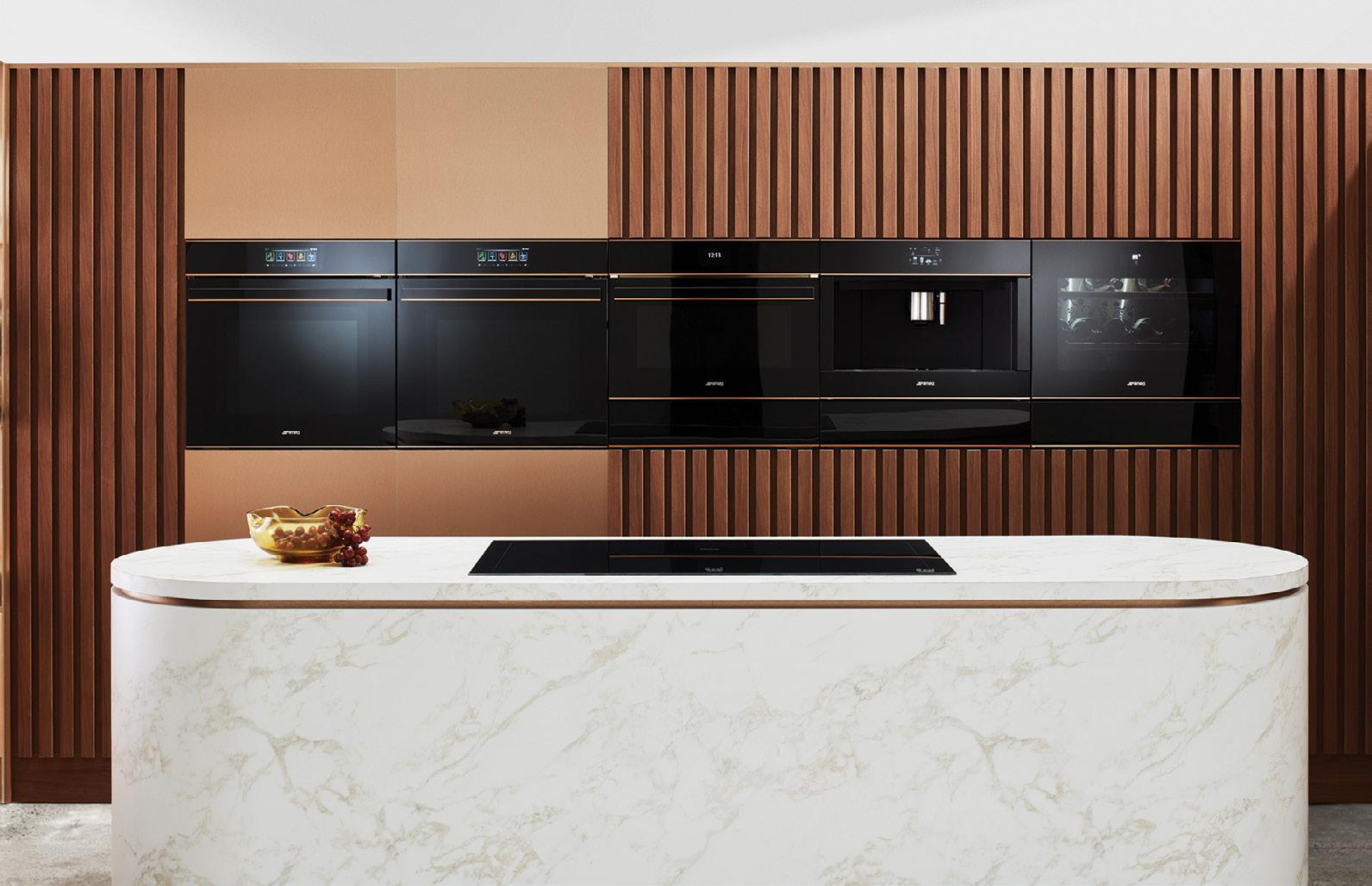
Panasonic Group is committed to applying innovative technologies to address CO2 emissions. “We are already pursuing ways to reduce our carbon footprint – shifting to netzero operations by 2030 – with new renewable energy technologies that will help transform the energy sector and society,” Paul Reid said.
Joining the B Corp movement is one way that Nespresso demonstrates the depth and meaning of its actions. The process of certification is rigorous and complex, analysing a company’s impact on their workers, community, environment, and customers. The B Impact Assessment also asks questions about governance structure and accountability.
“The combination of third-party validation, public transparency, and legal accountability help Certified B Corps build trust and value. Every three years, the process is repeated, and B Corps are required to demonstrate improvements in their actions and increase their scores to retain certification,” Hayley Warwick said.
Sustainability has been at the core of Magimix since day one with its 30-year motor warranty, using blades made from Sabatier stainless steel and accessories being compatible across all machines.
Before Belkin established its Executive Sustainability Committee, its dedicated sustainability engineering team shared a basic understanding of sustainability concepts from chemicals and materials to the meaning of Scope 1, Scope 2 and Scope 3 emissions.
“This makes us confident in our approach which is rooted in environmental science,” Belkin International head of global communications, Jen Wei said. AR
Electrolux Group has released its 2022 Sustainability Report which outlines its key results for the year. In 2022, 98% of electricity used in global operations was from renewable sources and 35% of ocean cargo transported with more sustainable fuels. Globally, the company’s most energy and water efficient products accounted for 24% of total units sold and 39% of gross profit.
Scope 1 and 2 emissions were reduced by 82% in 2022 and scope 3 emissions were reduced by 25% compared to 2015.
In 2022, Electrolux Group made good progress on decreasing the environmental footprint of its operations, including reducing emissions from energy use in manufacturing, warehouses and offices by 18% compared with 2021. The company continued to increase its own renewable energy generation capacity through the installation of on-site solar photovoltaic systems in Italy, Thailand, Australia, China, South Africa and Sweden, and is now looking into the potential for solar power purchase agreements (PPAs).
In 2022, Electrolux continued to work with its suppliers to improve their sustainability performance through its Responsible Sourcing Program and auditing of their operations. A Responsible Sourcing scoring model has been implemented globally and is used in sourcing decisions to reward and promote good supplier performance on sustainability, as well as to improve underperforming suppliers.
Electrolux Group has set new targets for using recycled steel in its products and will launch a new built-in refrigerator range with inner liners made from 70% recycled plastic. The company’s own research has shown that consumers perceive products containing recycled plastics to be more innovative, premium, high quality and sustainable.
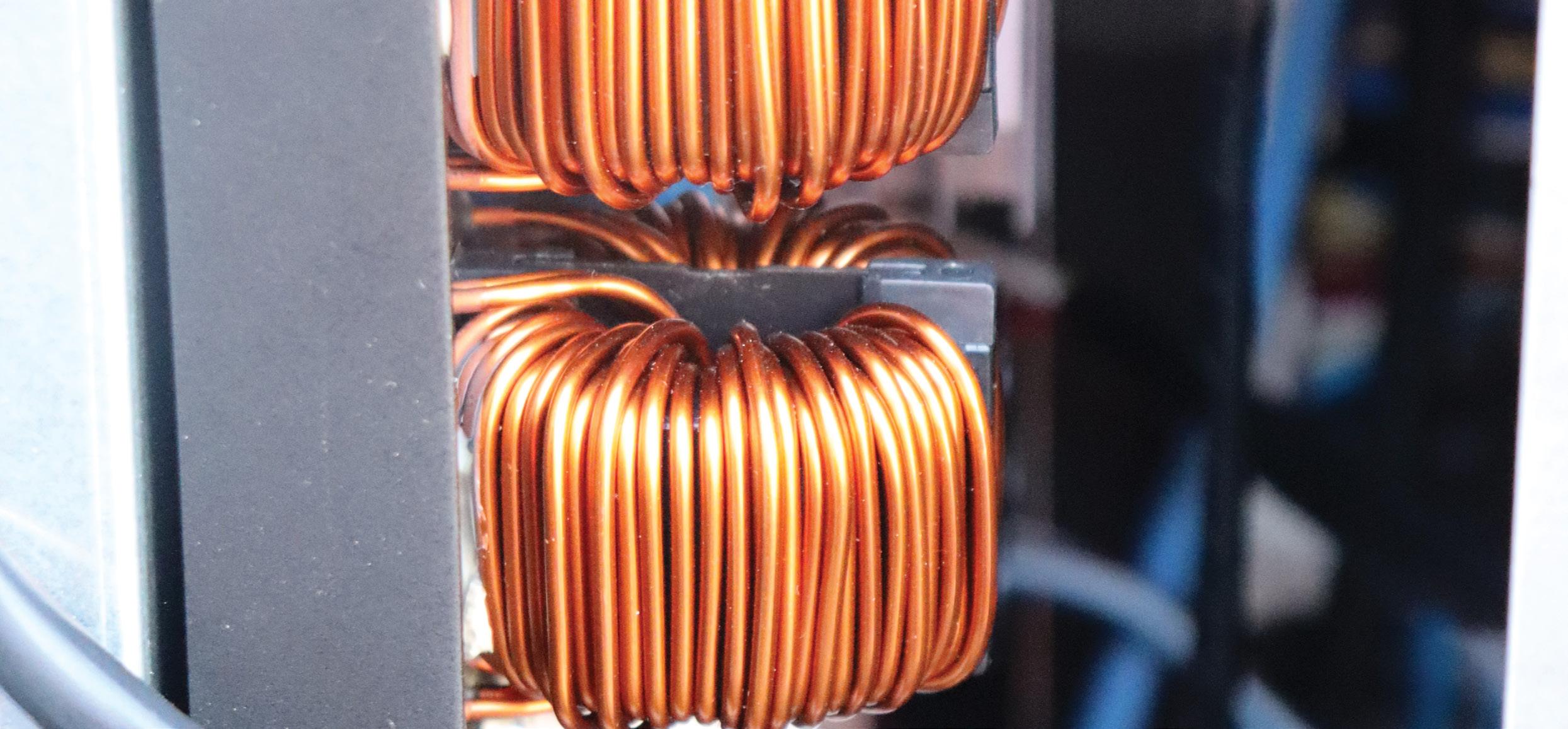
The Break the Pattern campaign was launched in 2022 to raise consumer awareness of the environmental impact of fast fashion, and how to care for clothes and make them last longer. According to the Electrolux Truth About
Laundry Report, items of clothing are thrown away after being worn just 10 times on average. Research by the New Standard Institute shows that extending the lifespan of clothing by an extra nine months can reduce carbon, waste and water footprints by between 20% and 30%.
Smeg factories utilise 100% renewable energy in terms of production with significant improvements made in terms of sourcing certified zero omission methane gas and reduction of waste in production or packaging.
“In Australia, we have reduced printed point-ofsale material and product brochures. When we do print, we use Forest Stewardship Paper (FSC), sourced from certified, environmentally sustainable sources. We save 71% paper by providing the option of digital user manuals. Smeg Learning, the web-based training platform launched in 2021 has revolutionised the delivery of training for time-poor salespeople offering an on-thego solution. The platform now includes small and major appliances and has seen 200% growth in the past 12 months,” Livia McRobert said.
All BSH locations worldwide have been carbon neutral since 2020, which means every BSH product is developed and manufactured without leaving a carbon footprint behind. “We achieved this by using processes that save more energy and less fossil fuel to make our products and using green electricity we generate ourselves,” Jessica Deuscher said.
“We are already replacing 63% of the emissions currently produced by the fossil fuels that are still necessary with green energy sources. The remaining 37% are offset by projects with Gold Standard and Verified Carbon Standard certification, including climate protection projects such as reforestation. Our aim is for all locations to be supplied with 100% green electricity by 2030.”
The ‘Buy Once, Buy Besser’ campaign from Miele is being supported by a new three-part social film series called Homegrown, in partnership with award-winning New Zealand chef, Michael Meredith.
“Michael takes viewers on a journey throughout Aotearoa to discover the best local produce and the people behind his favourite ingredients to learn about their unique processes and commitment to sustainability. He takes the fresh produce and creates recipes that honour the unique flavours using Miele appliances. The series is available to view on Miele’s website and social media channels,” Michele Laghezza said.
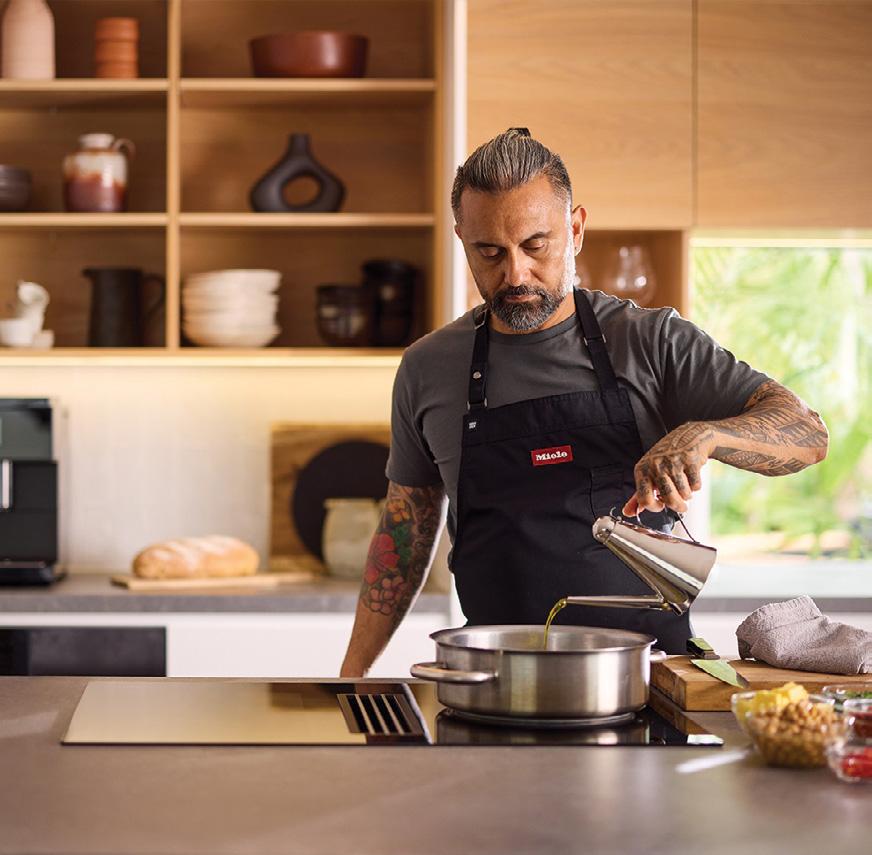
One major goal for Olimpia Splendid is to reduce the amount of wastage in point-of-sale displays. “Rather than discarding displays we have been collecting them from retail to revamp and repurpose them,” Peter Burnham said.
Panasonic partnered with engineering, logistics and energy company, ATCO Australia in late 2022, trialling a new fuel cell that is being used to convert hydrogen to electricity.
“The installation at the ATCO Clean Energy Innovation Hub (CEIH) in Jandakot, Western Australia is the first Australian test demonstration of the capabilities of Panasonic Hydrogen Fuel Cells. When established, the CEIH was Australia’s first commercial-scale, renewable hydrogen supply chain, a significant technological step towards reducing Australia’s greenhouse gas emissions,” Paul Reid said.
2023 marks the 20th anniversary of Nespresso’s AAA Program, which has grown from 300 farmers in Costa Rica in 2003 to over 140,000 farmers in 18 countries.
“Since 1991, we have been working with municipal partners to develop recycling solutions and now 88% of our consumers have access to a convenient recycling solution and all our capsules contain 80% recycled aluminium,” Hayley Warwick said.
“At a local level, we have delivered a number of new initiatives in the last 12 months including opening a new recycling facility in NSW, launching our first Recycling Rewards trial incentivising Australians to recycle, and launching our first Australian StartCup Challenge – a fund to support local start-ups and SMEs which are driving the circular economy.”
In the last 12 months, Belkin has been addressing Scope 1 and Scope 2 emissions. “We’ve received Leadership in Energy and Environmental Design (LEED) certification for our environmental impact, energy usage and other factors in the creation of our space, as well as Fitwel certification, focused on enhancing employee wellbeing in the office. We were rated across 12 categories including location, access to food preparation areas and emergency procedures,” Eric Co said.
“We’ve also achieved 35% carbon offset in Scope 2 emissions and we’re on track to become carbon neutral in Scope 1 and Scope 2 emissions by 2025.” AR
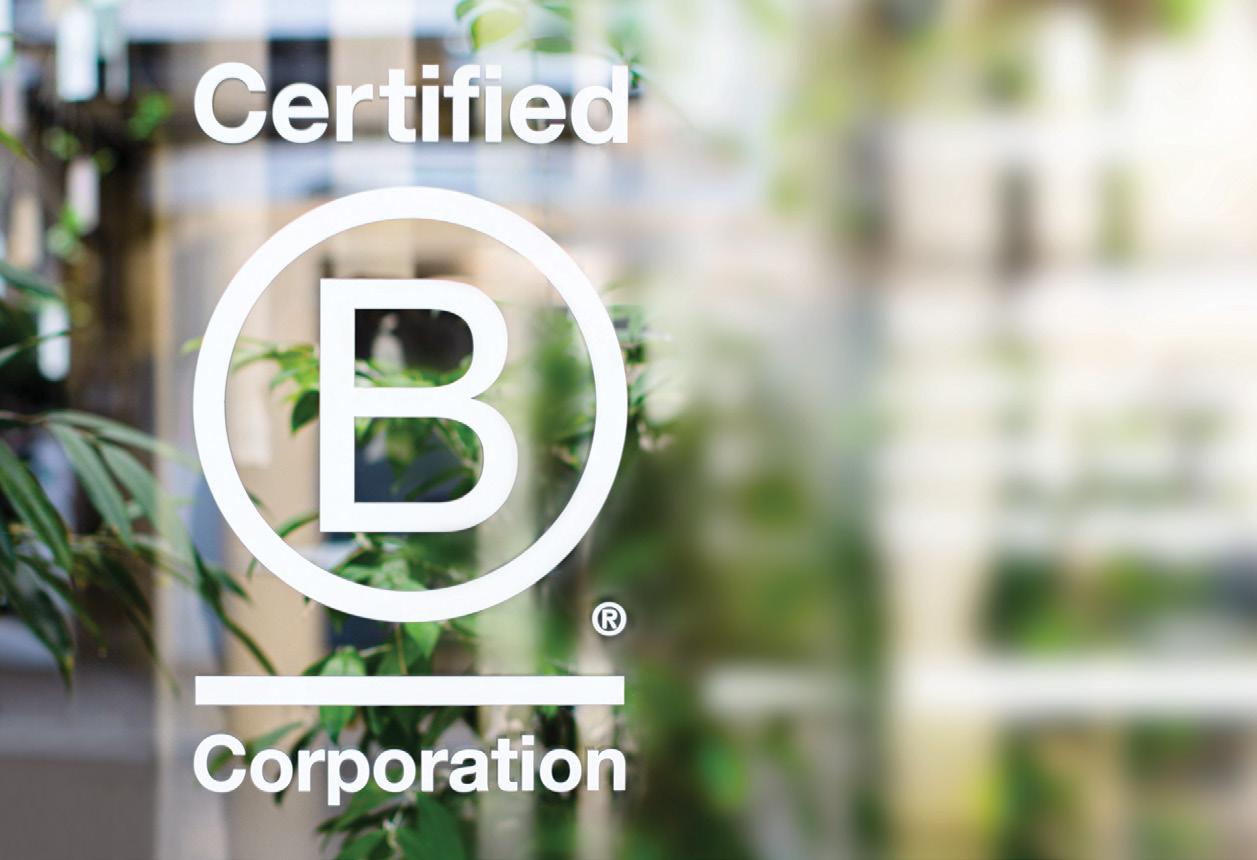
All BSH locations worldwide have been carbon neutral since 2020... the aim is for all locations to be supplied with 100% green electricity by 2030.
In Australia and New Zealand, initiatives from Electrolux line up behind key UN Sustainable Development Goals of Responsible Consumption and Production, Climate Action, Water Safety and Industry Innovation and Infrastructure.
“We are continuing our efforts to reduce Scope 1 and Scope 2 emissions across ANZ, with several focus initiatives including electrification of DC transport, continued partnership with Mainfreight on route optimisation to reduce kilometres travelled and in Queensland we are planning a new distribution centre with a significant renewable energy footprint,” Kurt Hegvold said.
“Electrolux Group is continuing to increase the percentage of recycled and recyclable materials we use across our portfolio. Our 2023 floorcare portfolio incorporates up to 70% recycled plastic and we will continue to expand the use of recycled materials across our air purification and laundry products. This aligns to the global Electrolux ambition of 50% of recycled plastic in products by 2030.”
Smeg Italy remains focused on continuing to deliver improvements and efficiencies in manufacturing centred around use of materials, energy and water, as well as waste management outcomes. “To align with manufacturing, Smeg is committed to converting recycled components from end-of-life products back to a secondary raw

material. Smeg will also continue to make packaging improvements, phasing out plastics in favour of biobased or cellulosic materials. We remain committed to improving photovoltaic installation and reducing direct and indirect emissions,” Livia McRobert said.
In addition to its goal of achieving 100% green energy at all sites by 2030, in Australia, BSH has a shorter-term sustainability goal of reducing waste that ends up in landfill to below 1% by 2025. “Furthering this, we aim to make our products from at least 50% of recycled material by 2030,” Jessica Deuscher said.
Eurolinx is in the process of formalising its sustainability plan. “In the immediate future, we are looking at improving waste disposal and recycling initiatives, as well as exploring ways to reduce energy consumption and source more sustainable and recyclable packaging materials. We have also drastically reduced our printing collaterals,” Daniel Bertuccio said.
A main priority for Miele is consumer education. For example, Miele recognises the push to induction cooking and has identified that one of the barriers to uptake of induction is lack of awareness and the perception that gas is needed for certain types of cooking, such as Asian dishes. “We have developed a masterclass program with Thai chef and sustainable farmer, Palisa Anderson, which will take place in Miele Experience Centres nationally in April this year,” Michele Laghezza said.
Packaging is a critical area being addressed by Steel. “We use recycled paper and only 3% of the material used is plastic. We are also testing ways to reduce the weight of the wood we use for transportation,” Auro Po said.

“From a product standpoint, in Europe, there is a fast shift from gas to induction. For example, 90% of the appliances we sell in The Netherlands are induction, compared to just 40% three years ago. We are also seeing this shift in Australia with induction slowly overtaking gas. In response, future product development will be more focused on induction than gas because we want more sustainable and better performing products.”
TOP: Miele has developed a masterclass program with Thai chef and sustainable farmer, Palisa Anderson designed to educate consumers about cooking on induction.

Olimpia Splendid is continuing to review more sustainable packaging options such as cardboard and paper, and adopting more efficient and environmentally friendly technologies, according to Peter Burnham. Globally, Panasonic has set specific target values for its own CO2 emissions reduction and a contribution to society-wide CO2 avoided emissions in its long-term environmental vision, Green Impact Plan 2024 (GIP2024).
“Panasonic aims to eliminate 16.34 million tons of CO2 emissions by 2025 from current emissions of 110 million tonnes. Panasonic is focusing on increasing the number of zeroCO2 factories from nine in fiscal 2022, to 37 in fiscal 2025,” Paul Reid said.
Nespresso believes that coffee agriculture can make a significant contribution to addressing environmental and social challenges. “We will advance our regenerative agricultural practices to restore landscapes and build resilient communities. We will continue to endorse circular principles where end-of-life materials are considered resources from the start,” Hayley Warwick said.
New eco-friendly packaging is a key focus for Magimix . “We are also working on new accessories compatible with all machines and a new product with replaceable parts,” Wivina Chaneliere said.
Two areas of focus for Belkin are packaging and product. “We’re in the process of transitioning to 100% plastic-free packaging and reducing the size of our packaging by 20%. We’re also transitioning our current products to 75% PCRplastic,” Eric Co said. AR
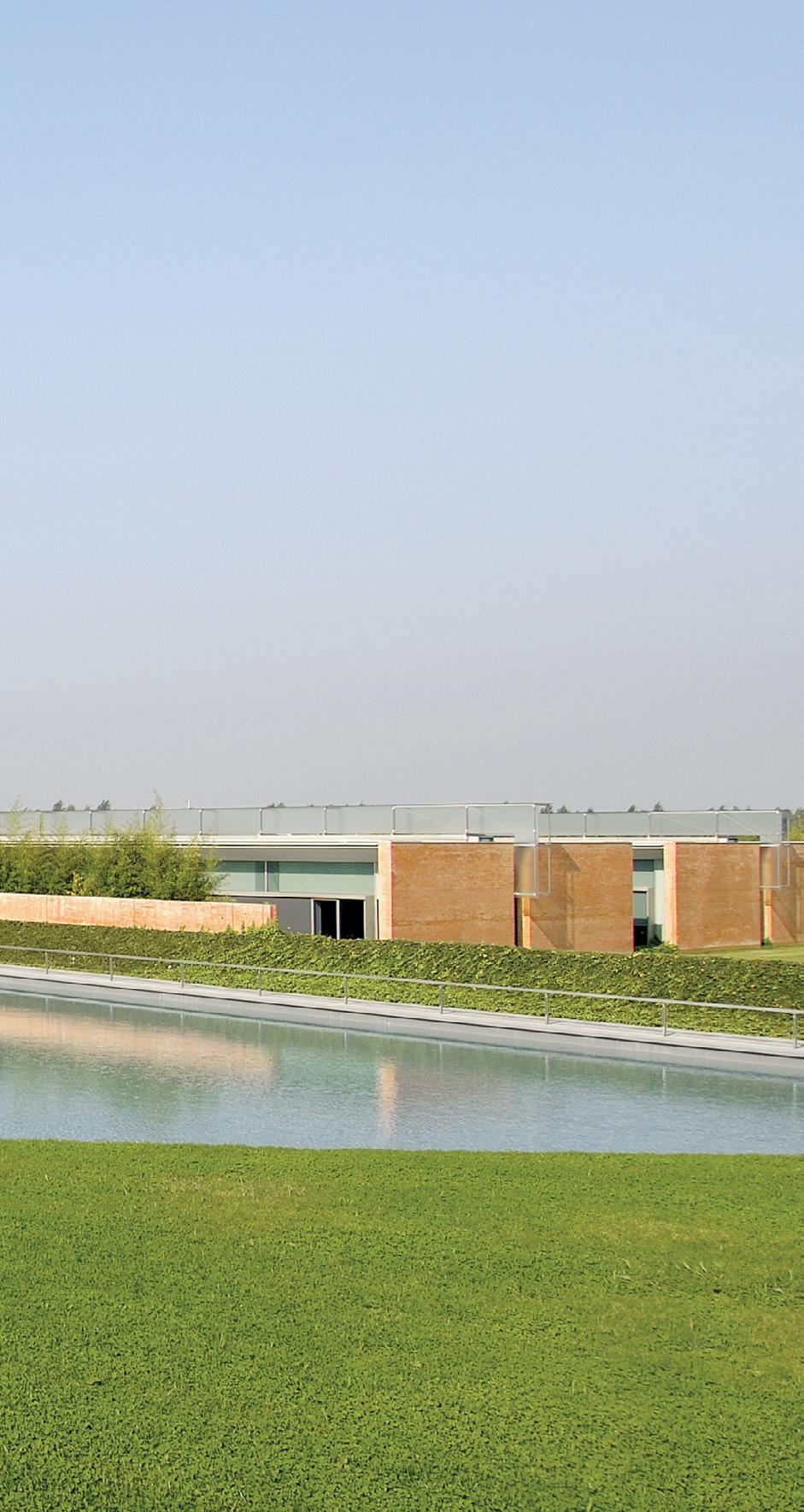
“
Smeg will continue to make packaging improvements, phasing out plastics in favour of bio-based or cellulosic materials.
Electrolux will continue to place sustainability at the heart of innovation, central to decisionmaking and a key component of mutual growth plans with retail and operational partners.
“Not only will we forge ahead with our own program towards circularity, but we will also take a proactive approach to elevating a collective industry voice and supporting collective industry actions that can aid in improved product and packaging stewardship programs of impact,” Kurt Hegvold said.
“We need to move forward from talking about the importance of sustainability and move away from a disparate and fragmented approach. There is great work being done by individual retail groups and supplier groups, but we are often running
in parallel and investing in common initiatives, missing the opportunity to create value through scale. Rather than operate in isolation, we could do more if we worked in collaboration.”
Smeg remains focused on sustainable development, innovation and respect for the environment, having obtained Certified Environmental Management System in compliance with ISO 14001, monitoring energy consumption, emissions and waste management. “In the coming year, Smeg Italy are planting an additional 1,000 trees to help reduce CO2 emissions. Smeg headquarters will be defined as ‘a company in a rural garden’ as it is built on a green field of 380,000 square metres. In conjunction with CNR (National Research Council Italy) Smeg is monitoring CO2 absorption capacity,” Livia McRobert said.
ABOVE: Almost half (47%) of Nespresso machines are made using recycled plastics.
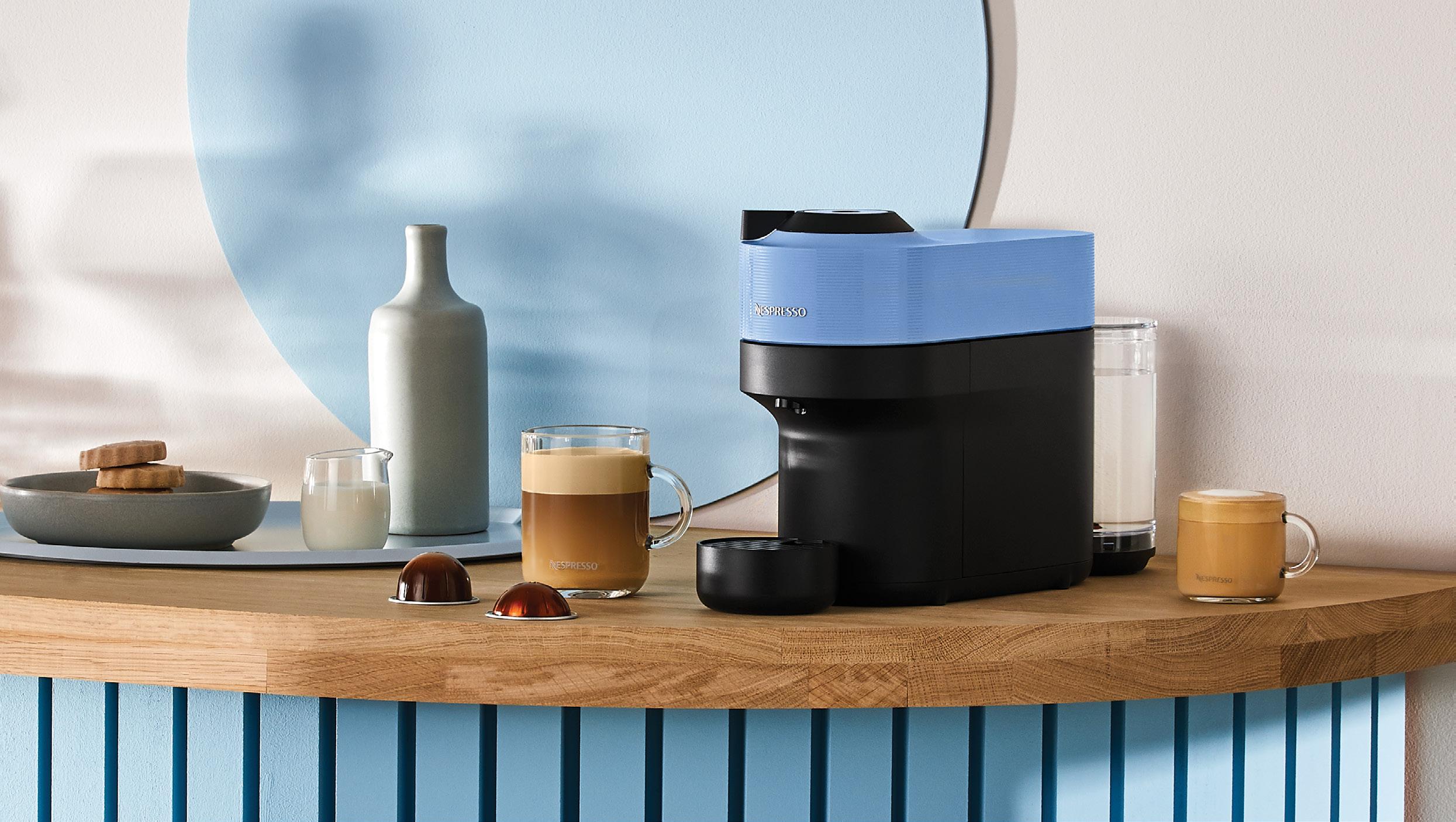
BELOW: The Magimix Cook Expert (pictured) along with all Magimix machines has a 30-year motor warranty.
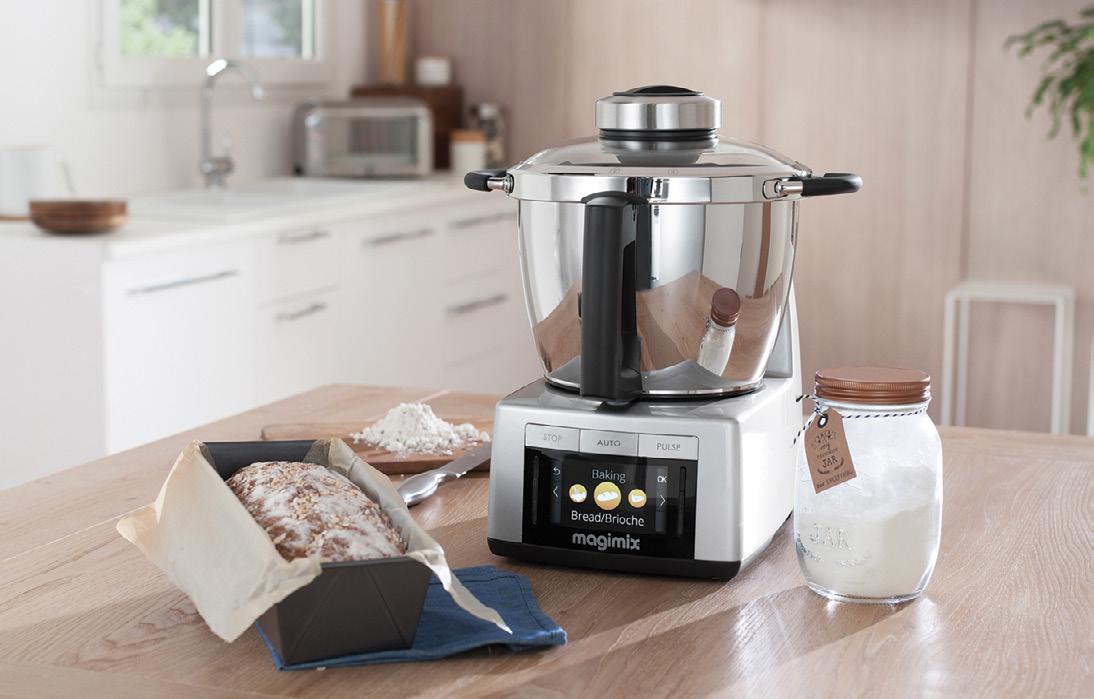
BOTTOM LEFT: Electrolux is building partnerships to continue to reduce the impact of product packaging and reduce waste to landfill.
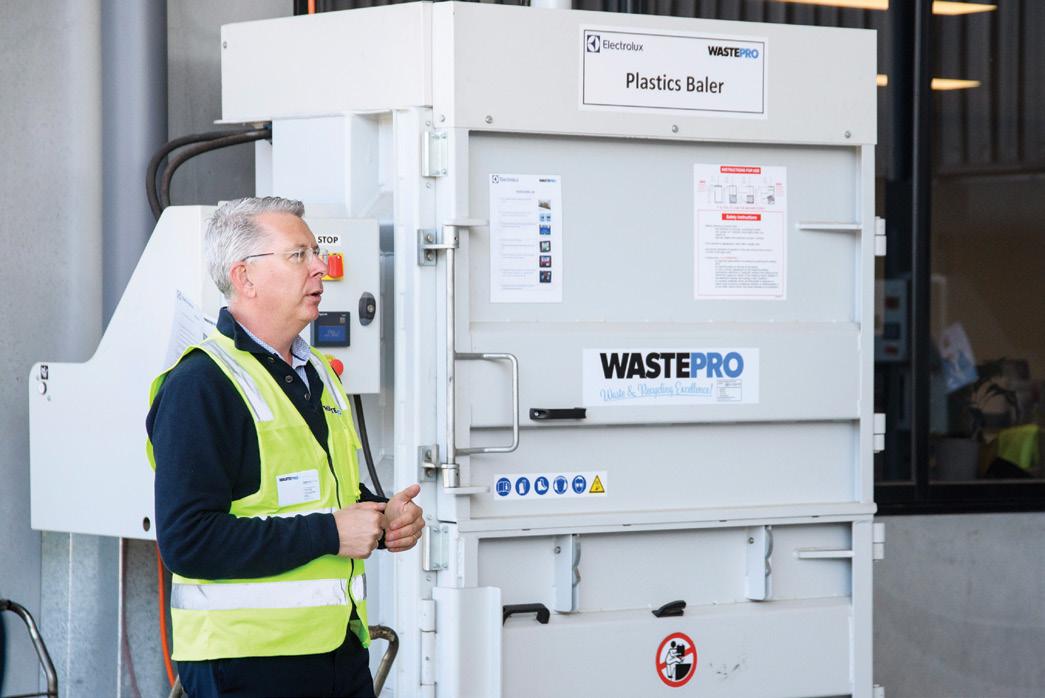
BSH and the Bosch group have committed to ambitious targets to become a more sustainable organisation. “We understand the importance of environmental protection, social responsibility and long-term economic sustainability to help create a better future,” Jessica Deuscher said.
Eurolinx and its factory partners acknowledge the moral and environmental obligation to improve its operations from a sustainability standpoint, as well as maintain high standards of product manufacturing and distribution. “In Australia, Eurolinx is actively seeking ways to improve how we can operate in a more sustainable way on a daily basis,” Daniel Bertuccio said.


Miele is committed to three sustainability pillars. “The first is integrating sustainability in every stage of the product and service lifecycle, the second is making the best possible products with the ultimate goal to become 100% carbon neutral, and the third is working towards a circular value chain with net-zero waste for all materials used in our appliances,” Michele Laghezza said.

Steel is investing in being a more sustainable company with plans to be carbon neutral by 2025, according to Auro Po.

Olimpia Splendid’s Peter Burnham is encouraging retailers to recycle or reuse packaging where possible, and ensure products returned are thoroughly tested before sending back. “In many cases products come back due to user error rather than defects, which can create a lot of wastage, particularly in relation to packaging and fuel.”

Panasonic Group strives to achieve carbon neutrality by taking action to reduce its own CO2 emissions and those in other fields. “By 2050, Panasonic Group aims to create solutions that reduce CO2 emissions by more than 300 million tonnes. The company will continue to be at the forefront of developing new renewable energy technologies that will help transform the energy sector and broader society,” Paul Reid said.
Nespresso’s coffee machines will play a key role in helping the company achieve its net-zero goals. “Our machines are designed to be robust, repairable and energy efficient. By making smarter use of plastic, incorporating recycled materials, and innovating our materials, we are valuing the precious resources that make up our coffee system,” Hayley Warwick said.
Magimix reinforced its 30-year motor warranty as its unique selling point with the overall product lifecycle of its machines outlasting its competitors, according to Wivina Chaneliere.


“For example, the Magimix XL Food Processor was launched in 2011, but the range remains relevant today. We’ve updated some aesthetics over the years but essentially, it’s stayed the same. The Cook Expert launched in 2016 hasn’t changed but we’ve rolled out software updates and introduced new accessories. We launch a product and stand by it, which helps minimise waste,” she said.
Being a more sustainable organisation is a lifelong commitment for Belkin. “It’s easy to make a claim without doing the hard work but we are committed to doing the hard work and ensuring we’re doing the right thing for the planet,” Eric Co said.

“We’re passionate about sustainability and completely changing the way we do business. We’re implementing PCR materials which comes with costs and challenges, but it’s not deterring us. We don’t want to be passing on that challenge to end consumers and channel partners so we are doing everything we can to create more sustainable ways to bring products to market,” Jamie
added.
Laing-Reece
AR
Not only will we (Electrolux) forge ahead with our own program towards circularity, but we will also take a proactive approach to elevating a collective industry voice and supporting collective industry actions.
From our beginning in Sweden in 1919, we have strived to make home life a better experience for everyone – richer and more effortless whatever the task. Taking great design solutions to support the everyday home life of our consumers, allowing them to do more with their loved ones and in a sustainable manner.
This is why we’re committed to implementing 100 actions over 11 years across four categories: Better Eating, Better Garment Care, Better Home Environment and Better Company.
